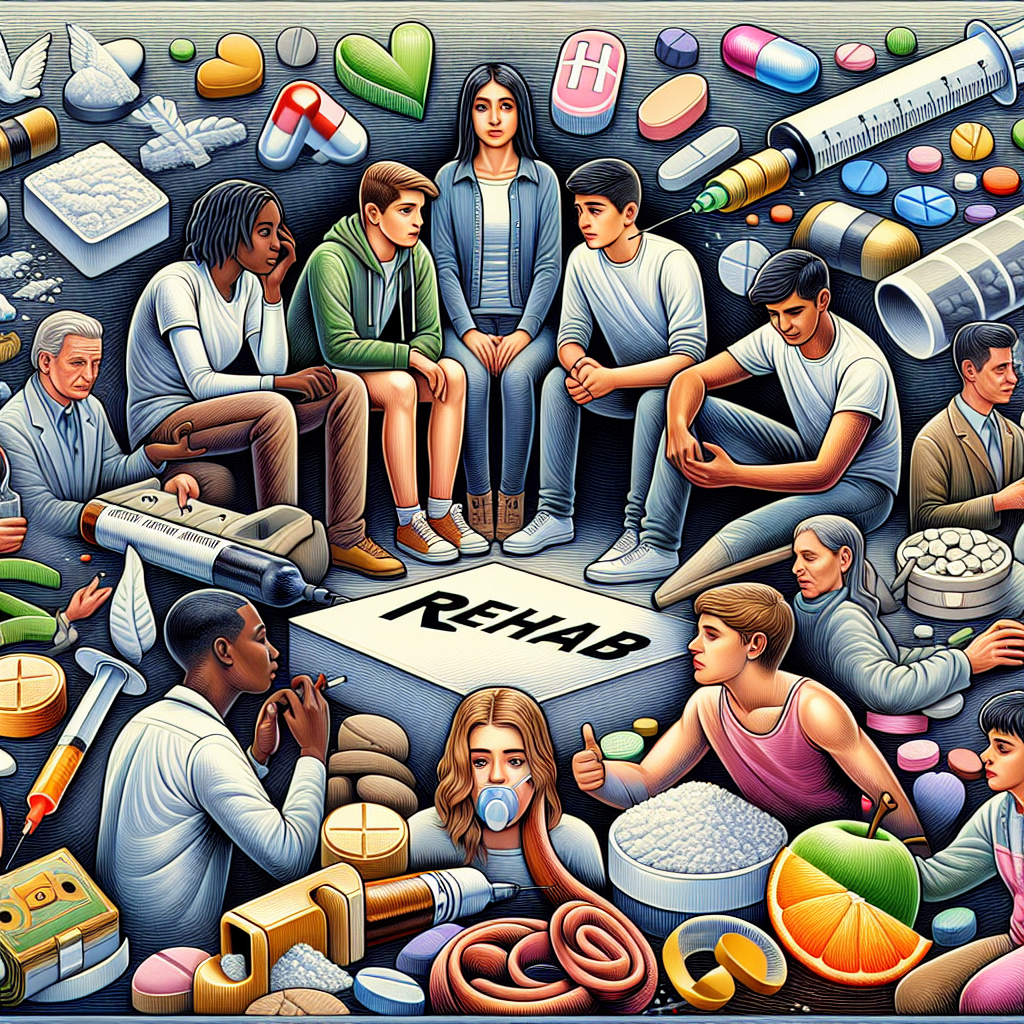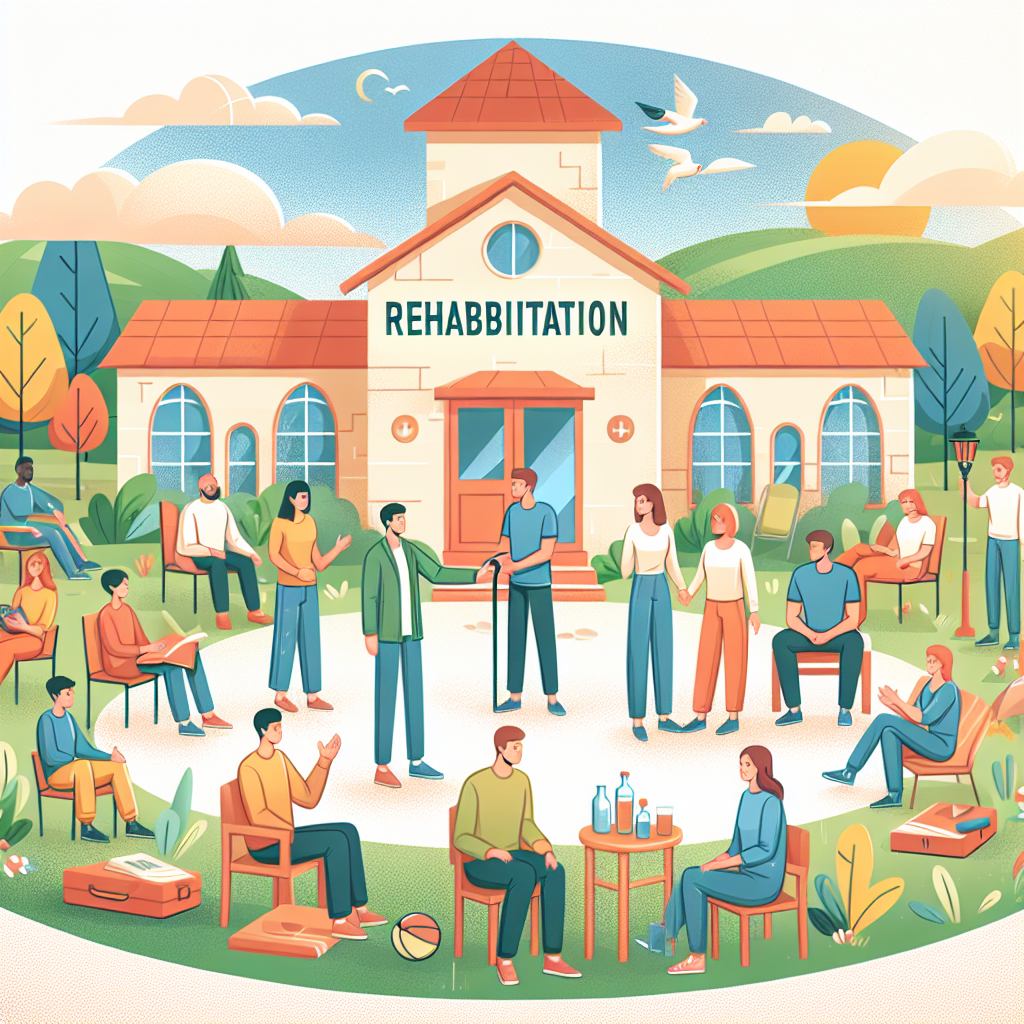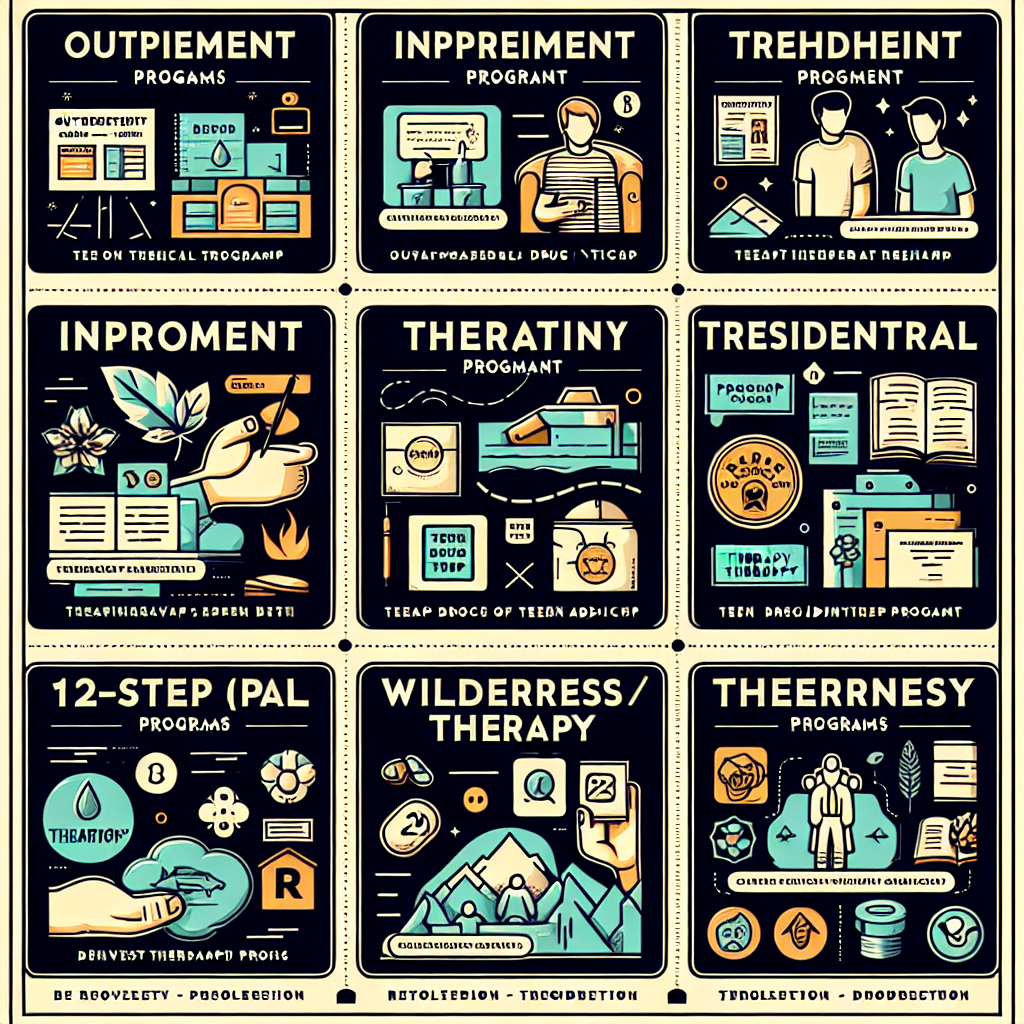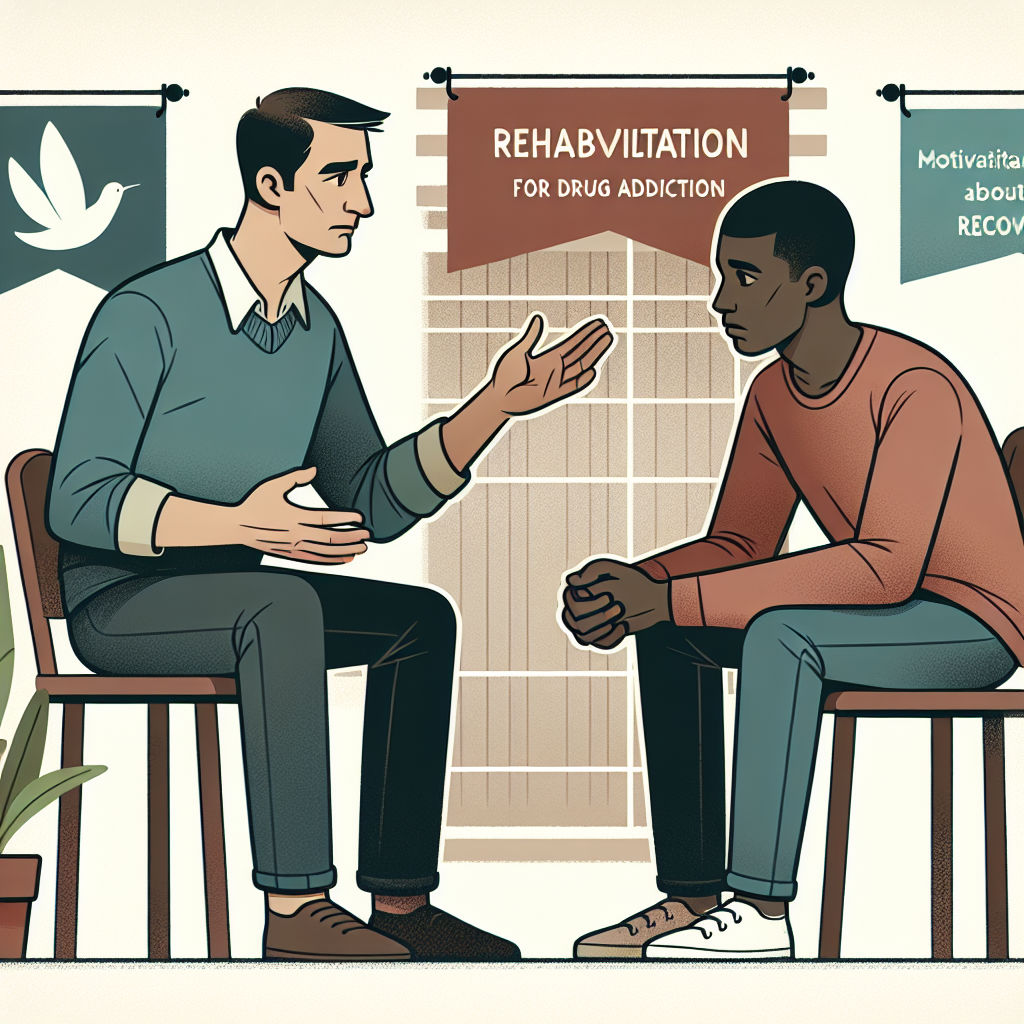-
Table of Contents

“Empowering Futures: Recognizing the Path to Teen Drug Addiction Recovery”
Introduction
Understanding the Need for Rehab in Teen Drug Addiction Recovery
Teen drug addiction is a growing concern that poses significant risks to the physical, emotional, and social well-being of adolescents. The developmental stage of teenagers makes them particularly vulnerable to the adverse effects of substance abuse, which can disrupt their academic performance, family relationships, and future prospects. Rehabilitation, or rehab, plays a crucial role in addressing teen drug addiction by providing a structured and supportive environment where young individuals can receive comprehensive care tailored to their unique needs. Rehab programs typically combine medical treatment, psychological counseling, and educational support to help teens overcome addiction, develop coping strategies, and reintegrate into society as healthy, productive individuals. Understanding the necessity of rehab in this context is essential for parents, educators, and healthcare providers to effectively combat the epidemic of teen drug addiction and foster long-term recovery.
The Role of Family Support in Teen Drug Addiction Recovery
Family support plays a crucial role in the recovery process for teens struggling with drug addiction. The journey to sobriety is often fraught with challenges, and having a strong, supportive family can make a significant difference in a teen’s ability to overcome these obstacles. Understanding the need for rehab in teen drug addiction recovery is essential, but equally important is recognizing how family involvement can enhance the effectiveness of rehabilitation programs.
When a teenager enters rehab, they are not just battling the physical dependence on substances but also the emotional and psychological issues that often accompany addiction. This is where family support becomes invaluable. Families provide a sense of stability and unconditional love, which can be a powerful motivator for teens to stay committed to their recovery. Moreover, family members can offer practical support, such as helping to manage daily responsibilities and ensuring that the teen attends therapy sessions and follows their treatment plan.
In addition to providing emotional and practical support, families can also play a critical role in identifying the underlying issues that may have contributed to the teen’s addiction. Often, drug abuse is a symptom of deeper problems, such as mental health disorders, trauma, or family dysfunction. By working together with therapists and counselors, families can help uncover these root causes and address them in a comprehensive manner. This holistic approach not only aids in the teen’s recovery but also strengthens the family unit as a whole.
Furthermore, family involvement in rehab can help break the cycle of addiction that may exist within the family. Addiction is often a generational issue, with patterns of substance abuse being passed down from one generation to the next. By actively participating in the recovery process, families can learn healthier ways of coping with stress and conflict, thereby reducing the likelihood of future substance abuse. This proactive approach can create a more supportive and nurturing environment for the teen, which is essential for long-term recovery.
Another important aspect of family support in teen drug addiction recovery is the role of communication. Open and honest communication can help rebuild trust and strengthen relationships that may have been damaged by the teen’s addiction. Family therapy sessions, which are often a component of rehab programs, provide a safe space for family members to express their feelings, share their experiences, and work through any unresolved issues. This can lead to a deeper understanding of each other’s perspectives and foster a sense of unity and solidarity.
Moreover, family support can help teens develop a sense of accountability. Knowing that their loved ones are invested in their recovery can encourage teens to take responsibility for their actions and make positive choices. This sense of accountability can be a powerful deterrent against relapse, as teens are more likely to stay on track when they feel supported and understood by their family.
In conclusion, the role of family support in teen drug addiction recovery cannot be overstated. While rehab provides the necessary tools and resources for overcoming addiction, the involvement of a caring and committed family can significantly enhance the chances of successful recovery. By offering emotional support, addressing underlying issues, breaking the cycle of addiction, fostering open communication, and promoting accountability, families can play a pivotal role in helping their teen achieve and maintain sobriety. This collaborative effort not only benefits the teen but also strengthens the family as a whole, paving the way for a healthier and more fulfilling future.
Identifying Early Warning Signs of Teen Drug Addiction
Recognizing the early warning signs of teen drug addiction is crucial for timely intervention and effective recovery. Adolescence is a period marked by significant physical, emotional, and social changes, making it a vulnerable time for the onset of substance abuse. Parents, educators, and peers play a pivotal role in identifying these early signs, which can often be subtle and easily overlooked. By understanding these indicators, we can take proactive steps to support teens on their journey to recovery and help them reclaim their lives.
One of the first signs of potential drug addiction in teens is a noticeable change in behavior. This can manifest as sudden mood swings, increased irritability, or unexplained bouts of anger. While mood fluctuations are common during adolescence, persistent and extreme changes may signal a deeper issue. Additionally, a decline in academic performance, loss of interest in previously enjoyed activities, and withdrawal from family and friends are red flags that should not be ignored. These behavioral shifts often indicate that the teen is struggling with something beyond the typical challenges of growing up.
Physical symptoms are another critical aspect to consider. Unexplained weight loss or gain, frequent nosebleeds, bloodshot eyes, and unusual body odors can all be indicative of drug use. Teens may also exhibit signs of poor hygiene, such as neglecting personal grooming or wearing the same clothes repeatedly. These physical changes, coupled with behavioral alterations, provide a clearer picture of the potential issue at hand.
Moreover, changes in social circles can be a telling sign. Teens who suddenly start hanging out with a new group of friends, especially those known for risky behaviors, may be at risk. This shift often accompanies a desire to fit in or seek approval, leading them down a dangerous path. It’s essential for parents and guardians to stay engaged and communicate openly with their teens about their friendships and social activities.
Another significant indicator is the presence of drug paraphernalia. Items such as rolling papers, pipes, small plastic bags, or unusual containers can be found hidden in a teen’s room or belongings. Discovering these items should prompt an immediate and compassionate conversation about drug use and its consequences. It’s important to approach this discussion with empathy and understanding, rather than judgment, to encourage honesty and openness.
In addition to these signs, emotional changes are also a key factor. Teens struggling with addiction may exhibit symptoms of depression, anxiety, or extreme stress. They might express feelings of hopelessness or worthlessness, which can be exacerbated by drug use. Recognizing these emotional shifts and providing a supportive environment can make a significant difference in their willingness to seek help.
Understanding the need for rehab in teen drug addiction recovery is paramount. Rehabilitation programs offer a structured and supportive environment where teens can address the root causes of their addiction. These programs provide medical, psychological, and emotional support, helping teens develop coping mechanisms and life skills essential for long-term recovery. By identifying the early warning signs and intervening promptly, we can guide teens towards the path of rehabilitation and recovery.
In conclusion, the early detection of drug addiction in teens is a critical step in ensuring their well-being and future success. By staying vigilant and informed about the warning signs, we can offer the necessary support and resources to help them overcome addiction. Through compassion, understanding, and timely intervention, we can inspire hope and facilitate a brighter, healthier future for our youth.
Q&A
1. **Question:** Why is professional rehabilitation important for teens struggling with drug addiction?
**Answer:** Professional rehabilitation is important for teens struggling with drug addiction because it provides structured support, medical supervision, and therapeutic interventions that address both the physical and psychological aspects of addiction, helping teens to develop coping strategies and prevent relapse.
2. **Question:** What role does family involvement play in the rehabilitation process for teen drug addiction?
**Answer:** Family involvement plays a crucial role in the rehabilitation process for teen drug addiction by offering emotional support, improving communication, and creating a stable home environment, which can significantly enhance the effectiveness of treatment and contribute to long-term recovery.
Conclusion
Understanding the need for rehab in teen drug addiction recovery is crucial as it addresses the unique physiological, psychological, and social challenges faced by adolescents. Rehab programs provide structured environments, professional medical and psychological support, and tailored treatment plans that are essential for effective recovery. These programs also offer education and coping strategies to prevent relapse, fostering long-term sobriety and healthier lifestyle choices. By recognizing the importance of specialized rehab for teens, we can better support their journey towards recovery and overall well-being.



